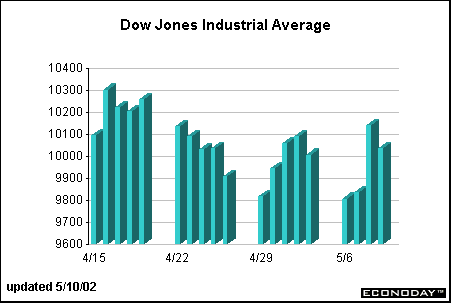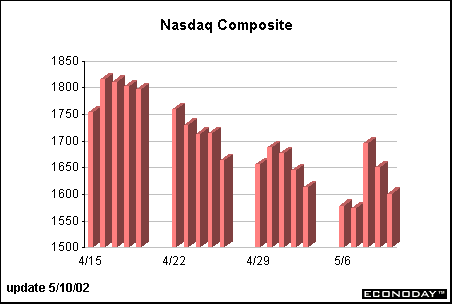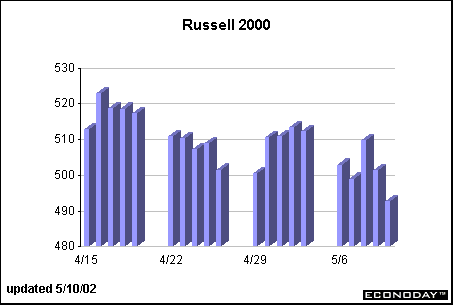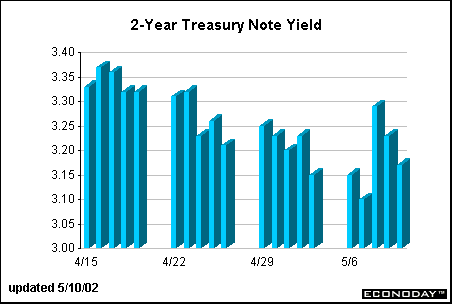
Irrationally exuberant expectations lead to downfall
At the end of 2001, market players were starting to see signs that the economy was coming out of its slump. Despite warnings from economists and even Fed officials, equity investors became not only hopeful but outright cheerful about the prospects for robust corporate earnings and economic growth in the early part of 2002. Now that the first half of 2002 is nearly complete, equity investors are finding out that the economists were right, the recovery is indeed soft. Corporate earnings are generally disappointing; some companies are reporting strong results but many are not.

As a result, neither the still accommodative Fed nor economic news was sufficiently bullish to keep a rally going in the equity market. The Russell 2000, which tracks small-cap stocks, has been the only measure to post consistent gains, although it took a big hit this past week too. The Dow Jones Industrial Average has outperformed the Nasdaq Composite Index this year because investors are feeling better about owning "old economy" stocks than "new economy" stocks. Nevertheless, the Dow is still fighting to hold above 10,000, which it slipped under on Friday.

It is true that equity investors were too excited about the end of the recession late last year. Unfortunately, they're now overcompensating for their enthusiasm by being overly negative.

FOMC effect erased by other factors
The Fed's decision to keep its federal funds target at 1.75 percent and its bias at neutral was friendly news for the bond market. In fact, the statement at the conclusion of the FOMC meeting also implied that the Fed is not inclined to immediately start raising rates, although rates could go higher if economic growth starts moving at a fast clip. Most bond investors had expected the Fed to shift its risk bias to a tightening mode and raise its rate target sooner. The friendly news allowed the yield on the 2-year note to dip down to 3.10 percent, the lowest level since February 28.
Unfortunately for the 2-year note, the DJIA jumped more than 300 points on Wednesday and this caused the yield to surge 19 basis points to 3.29 percent. Even with the 100-point drop in the Dow on Thursday, triggered by an anthrax scare at the Fed, the yield on the 2-year note fell only 6 basis points on the day. After all is said and done, bond investors seem more convinced about a robust economic recovery than equity investors and are poised for rate hikes at the slightest provocation.



Markets at a Glance • Recap of US Markets • The Economy • The Bottom Line • Looking Ahead
|